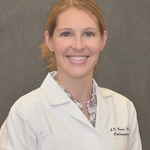A few years ago, I picked up a copy of Stephen Covey’s book, The 7 Habits of Highly Effective People (2013. Simon & Schuster). Perhaps I was a little bit behind the times, as it was the 25th anniversary edition and 25 million copies had already been sold worldwide. Covey credits the book’s long-lasting success with the fact that each of the principles are self-evident and endure in most ethical, religious, and social systems.
Explore This Issue
August 2022Recently, Andrew Tompkins, MD, MBA, presented a three-part series focused on the otolaryngology workforce. He concluded the first article with a firm stance: “We should question historical narratives, take ownership of our own data, and seek to understand the truth about what’s happening in the otolaryngology market.” I immediately thought of Covey’s second habit, “Begin with the End in Mind,” which means to begin each day, task, or project with a clear vision of your desired direction and destination. What could an end state look like for our specialty?
Recently, there have been similar calls, from the broader medical community, for increased accountability regarding graduate medical education outcomes. One of the categories of accountability is that of outcome assurance, including aspects of workforce distribution (geographic and specialty) and workforce diversity, to meet the growing healthcare needs of society (Acad Med. 2022;97:643-648). This isn’t an easy task, however, as it requires tracking educational outcomes to individual institutions and sharing these data in a transparent manner.
Our colleagues in general surgery have embraced this challenge. The Association of Program Directors in Surgery (APDS) has launched an Education Quality Improvement Program (EQIP) (J Surg Educ. 2022;79:867-874). A working group, including members of the APDS, Surgical Council on Resident Education, and American Board of Surgery, identified 82 variables representing resident- and institution-level characteristics and outcomes. Modeled after the American College of Surgeons’ National Surgical Quality Improvement Program, training programs will be able to see their own performance relative to specialty-level benchmarks. While it’s still early in the implementation process, the EQIP team has engaged with numerous stakeholders to help further the goal of improving surgical training continuously.
Over the past two years, the coronavirus pandemic has upended the healthcare industry. We were forced to adapt our processes for selecting residents (e.g., virtual interviews) and assessing patients (e.g., telemedicine). Maybe now that the status quo has been disrupted is the perfect time to start asking ourselves, who are we selecting for residency training, and who are we not training? What is the geographic distribution of our training programs and how might that influence where individuals practice? How might changes in access to or practice patterns within other fields impact our own specialty?
I think these are exciting times, providing an opportunity for us to change the landscape of otolaryngology, while keeping the end in mind.
